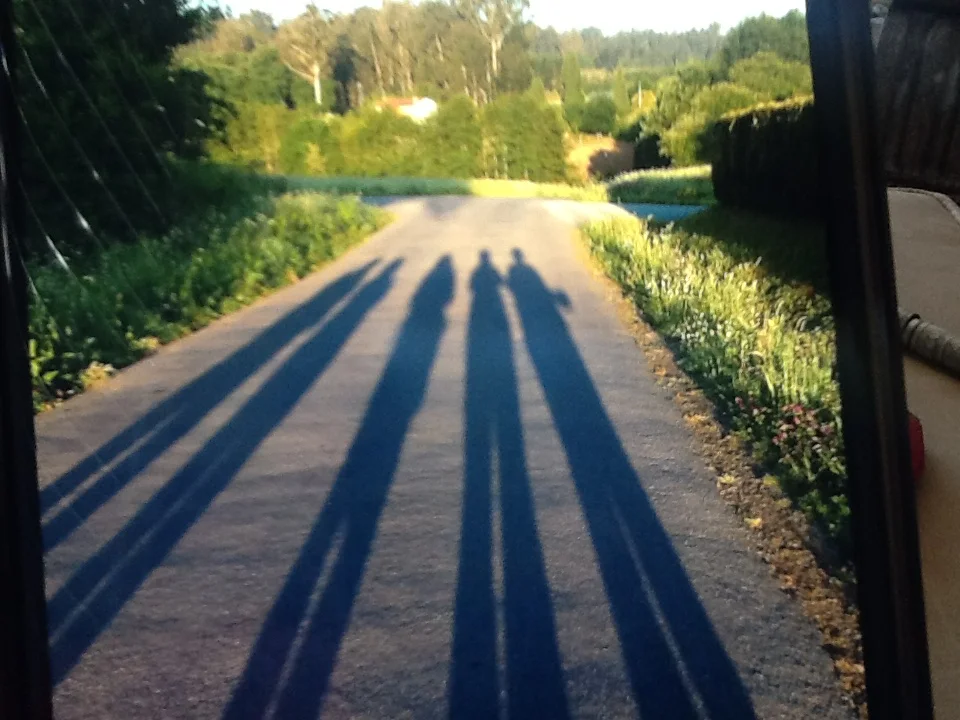Her story spans 4 continents. Judite is the 7th of 8 surviving children. Her dad was born in Portugal, and his mother was the illegitimate child of a Portuguese Count who never acknowledged her as his daughter. She had worked for this rich family as a labourer and the pregnancy was a huge stigma for her grandparents. Judite's dad was the second son of a father who left for Brazil when he was a child. He never saw his father again as he had started a second family in Brazil.
Judite's mother, the greatest influence in her life, was the second of six children. Her father died at the age of 28 from tuberculosis, leaving her other grandmother with 5 children and pregnant with another. Her grandmother never re-married and raiser her children by working the land. Judite's mother, being the second eldest, along with her older sister never went to school because she was needed to help raise her younger siblings. As a result, her mother could never read or write.
Marriage for her mother became a way out of poverty, and although she did not marry into wealth, 60 years of marriage became the testament to a true love story. After the Second World War, Judite's father left both Portugal and his family to look for a better life for his family. One might have thought he would have gone to Brazil to find his own father, but instead chose to go Mozambique, a Portuguese Colony in Africa to start a new life. His job was as a labourer helping build the railway.
Three years after her dad left for Mozambique, he called for his family to join him. This was a huge journey for her mother as she was travelling for the first time in her life, going into the unknown, to deep, dark Africa as she would often call it. On joining him, she discovered he had contracted malaria and lived in a tent. She would later say that often at night she could hear the lions roaming the railway camps looking for food. Her biggest fear was that the lions would eat her babies. Yet as difficult as life was, returning back to Portugal was not an option, so they endured. Several years later and looking for a better life, they moved to neighbouring Rhodesia. They moved across the border to a small town, Umtali where Judite was born. She was a family of 8 children with 2 children deceased.
Rhodesia was a British colony, safe and secure or so it seemed. But it was not to be. Short years later, Rhodesia broke away from Britain and declared themselves an independent country. Racial unrest was growing, similar to many African countries. Throughout these difficult times, Judite's father worked for the roads department as an unskilled labourer, and despite his meagre salary, with her mother supplementing the family income by running a boarding house, and her dad doing a little bootlegging, they were able to purchase their first house. It was in an upscale neighbourhood where bankers, company owners and insurance brokers lived. To her parents this felt like the land of bread and honey that they hoped for, but the family felt discrimination because they did not fit the profile of the neighbourhood. Hers was a large immigrant family, with little education, speaking broken English and her father working as a labourer; and they were a loud, large bunch of kids. The neighbours' kids were told they weren't allowed to play with them, but they did. It was because her home was fun, not much in material things, but always fun, and always with lots of bread and jam around.
Her parents never felt like they fit in, so once their children were married and after 20 years in Rhodesia, they returned to Mozambique, the country that started their African voyage. Perhaps because Mozambique was a Portuguese colony, they felt they would be better accepted. Their new home was just across the border from Umtali. They bought a property with a farm, a restaurant and a flour mill. But fate had other plans. The guerilla war had intensified in Mocambique. Following a military coup in Portugal, the colony of Mocambique was handed back to the natives of Mocambique. So after only two years, her parents went back to Rhodesia, and her father went back to his roads job. But then he was risking his life as he worked , dealing with land mines and terrorist ambushes. As the guerilla war in Rhodesia intensified, the world was now pressuring for Rhodesia to be delivered to the natives.
So in 1978, just before independence was declared in Rhodesia, and more than 30 years after having left, Judite's parents returned to Portugal, with little money and starting back where they had left off after the Second World War. There they lived off the land, growing grapes and vegetables until their deaths, choosing not to join six of their kids who ultimately emigrated to Canada for a better life. Her parent thinking was they never wanted to be immigrants again. Her mother died of leukemia and her father died four months later. The doctor said he died from a broken heart.
